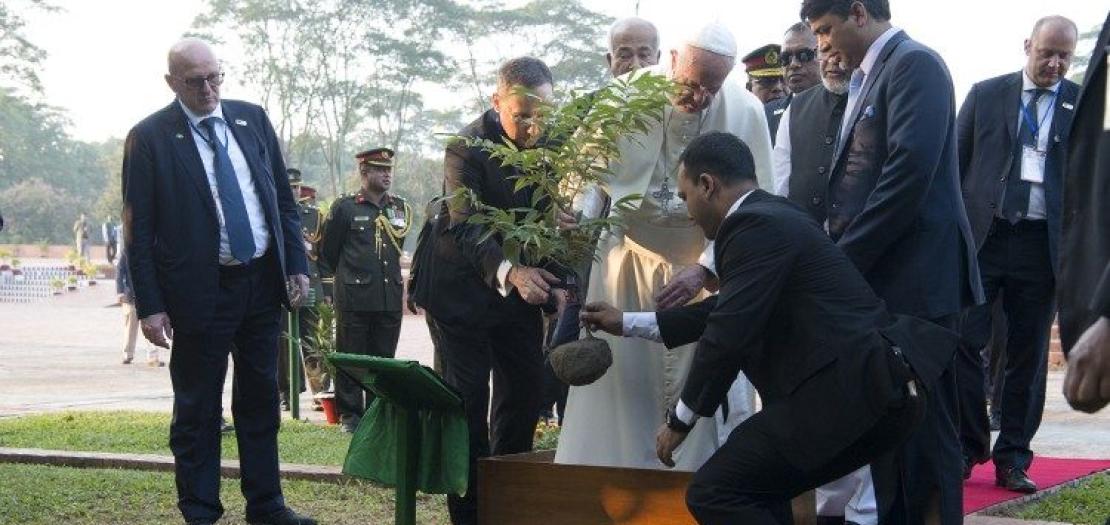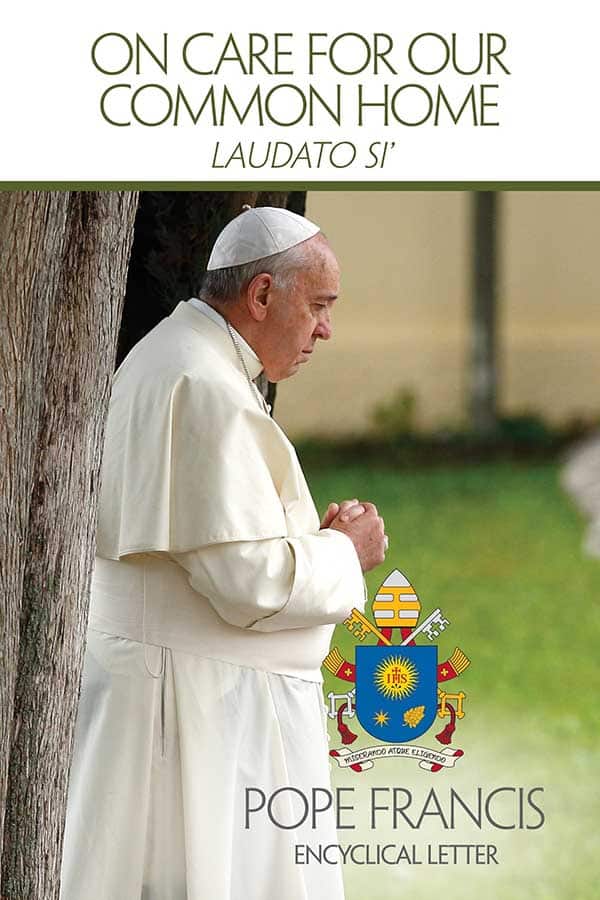Exploring Pope Francis' Encyclical: Laudato Si' & The Environment
Can a single document truly shift the global conversation around our planet's future? Pope Francis's encyclical, Laudato Si', not only challenged centuries of Catholic teaching but also ignited a global dialogue on environmental stewardship.
The year 2015 marked a pivotal moment when Pope Francis released Laudato Si', his second encyclical and the first in the church's history dedicated solely to the environment. This wasn't merely a theological treatise; it was a clarion call, a worldwide wake-up call, urging humanity to confront the devastation we inflict on the Earth and each other. The encyclical, subtitled "On Care for Our Common Home," transcended religious boundaries, inviting all people to reconsider their relationship with the planet.
| Information | Details |
|---|---|
| Full Name | Jorge Mario Bergoglio |
| Born | December 17, 1936 (age 87) in Buenos Aires, Argentina |
| Religious Order | Society of Jesus (Jesuits) |
| Ordination | December 13, 1969, as a priest; April 20, 1992, as a bishop |
| Episcopal Motto | Miserando atque eligendo (Having mercy and choosing him) |
| Papal Election | March 13, 2013 |
| Papal Name | Francis |
| Previous Positions | Archbishop of Buenos Aires (1998-2013); Cardinal (2001-2013) |
| Significant Writings | Evangelii Gaudium (2013), Laudato Si' (2015), Fratelli Tutti (2020) |
| Known for | Emphasis on social justice, environmentalism, and interreligious dialogue. |
| Website | The Vatican |
In chapter five of the encyclical, Pope Francis delves deep into the environmental crisis and the shared responsibility of the international community. This resonated with the ongoing climate talks and negotiations, such as the 1992 Earth Summit and the 2014 COP20, which aimed to reduce global pollution and address social injustices. However, these efforts often falter. The encyclical offered a fresh perspective, urging a transformation of economic systems and political policies to avert an environmental catastrophe.
The name "Laudato Si'," meaning "Praise be to you," is taken from the Canticle of the Sun by Saint Francis of Assisi, the patron saint of the environment. The Pope's choice of name underscored his commitment to ecological stewardship and his alignment with the saint's emphasis on poverty and care for creation. This wasn't just a document; it was a spiritual and moral compass, inviting individuals and societies to re-evaluate their relationship with the planet.
Published in May 2015, Laudato Si' broke new ground. It wasn't just the first encyclical dedicated to environmental concerns; it was a call to action. It presented a theology of creation, highlighted ecological crises, and advocated for global cooperation and lifestyle changes. The pontiff didn't mince words; he warned of the dangers of global warming and its disproportionate impact on the poor and vulnerable. This wasn't just an environmental statement; it was a social justice imperative. He builds on this in subsequent writings, for example, by publishing an apostolic exhortation in the years following Laudato Si.
The encyclical urged an "ecological conversion" for the faithful. Pope Francis emphasized the interconnectedness of human life and the moral law, arguing that a more dignified environment is necessary. He echoes Pope Benedict XVI's concept of an "ecology of man," stressing that humans must respect their own nature as well as the environment. This is because the destruction of the environment is, in essence, a form of self-destruction. The encyclical called for an integral ecology, which encompasses not only man's impact on the environment but also the underlying philosophical, theological, and cultural causes of environmental problems.
Pope Francis's approach isn't entirely novel. Pope John Paul II, for instance, frequently addressed the duty of stewardship toward nature, highlighting the need for humans to cooperate with God in promoting a rightly ordered world. However, Francis's encyclical has a unique character, that is broader in scope. It critiques consumerism, wastefulness, and irresponsible economic development, linking environmental concerns to the need for justice for the world's most vulnerable populations. The encyclical is a worldwide wake-up call, intended to help humanity understand the destruction being wrought upon the environment and our fellow human beings. He made it clear that he believes the human origin of global warming is beyond doubt, and that climate change deniers are acting against the common good.
The document's impact extends beyond religious circles. It refers to contributions by philosophers and theologians from various traditions. The encyclical is an invitation to dialogue for all of humanity, and one of its key aspects is its use of language accessible to a wide audience. It highlights the interconnectedness of all things, framing environmental concerns as an existential moral concern. The Pope sees the crisis not only as an environmental one, but a deeply rooted social one. He called on the world's 1.2 billion Catholics to join the fight against climate change, declaring that the science of climate change is clear and that the Catholic Church views climate change as a moral issue. This is because it is a moral imperative that requires swift and unified global action.
While the encyclical's extreme length (80 pages, approximately 45,000 words) might make it challenging for some to process, it is essential reading. Pope Francis's green legacy is encapsulated in Laudato Si'. It is a beacon that upended centuries of Catholic Church teaching by framing a dialogue for all of humanity. The encyclical calls for an ecological conversiona change of heart and mind. It's not enough to simply acknowledge the problems; we must act. The Pope's second encyclical is a sign of the times, a response to the urgent need to care for our planet and its inhabitants, while making it clear that our responses have not been adequate. It is time to react. It is time to change the way of life for our suffering planet.


